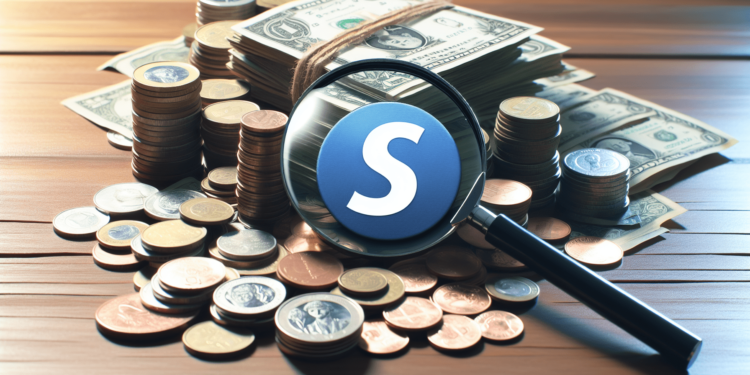Understanding Facebook Ads Budgeting
If you’re new to advertising on Facebook, you might be wondering, “What is a good amount to spend on Facebook ads?” Well, there isn’t a one-size-fits-all answer to that question. The amount you should spend on Facebook ads depends on various factors, including your business goals, target audience, industry, and competition. In this article, we’ll discuss how to determine the right budget for your Facebook ad campaigns.
Factors to Consider when Setting a Facebook Ads Budget
Before you dive into setting a budget for your Facebook ad campaigns, there are several factors you need to consider. These factors will help you determine how much you should spend to achieve your advertising goals effectively.
Your Business Goals
The first step in setting a budget for your Facebook ads is to define your business goals. Are you looking to increase brand awareness, drive website traffic, generate leads, or boost sales? Your advertising goals will play a significant role in determining how much you should spend on Facebook ads. If your goal is to reach a broader audience and build brand awareness, you may need a higher budget compared to a campaign aimed at driving conversions.

Target Audience
Understanding your target audience is crucial when setting a budget for Facebook ads. The size of your target audience and its demographics will impact how much you should spend on advertising. If you’re targeting a broad audience with diverse interests, you may need a larger budget to reach and engage with them effectively. On the other hand, if your target audience is niche and specific, you might be able to achieve your goals with a smaller budget.
Industry and Competition
The industry you operate in and the level of competition on Facebook will also influence your ad budget. Some industries are more competitive than others, making it harder to stand out and reach your target audience. If you’re in a highly competitive industry, you may need a larger budget to outbid your competitors and get your ads in front of your target audience. Additionally, the cost of advertising on Facebook can vary based on supply and demand within your industry.

Types of Facebook Ads
The type of Facebook ads you’re planning to run will impact how much you should spend on your campaigns. Different types of ads, such as image ads, video ads, carousel ads, and lead ads, have varying costs associated with them. Video ads, for example, tend to be more expensive than image ads due to their engaging nature and higher production costs. Consider the type of ad that aligns with your goals and budget accordingly.
Setting a Realistic Budget for Your Facebook Ads
Now that you’ve considered the various factors that influence your Facebook ads budget, it’s time to set a realistic budget for your campaigns. Here are some steps to help you determine the right amount to spend on Facebook ads:
Define Your Key Performance Indicators (KPIs)
Before setting a budget for your Facebook ads, it’s essential to define your key performance indicators (KPIs). Your KPIs are the metrics that you’ll use to measure the success of your ad campaigns. Whether it’s website clicks, leads generated, or sales made, knowing your KPIs will help you allocate your budget effectively.
Calculate Customer Lifetime Value (CLV)
Understanding the lifetime value of your customers can help you determine how much you’re willing to spend on acquiring new customers through Facebook ads. Calculate your customer lifetime value by estimating how much revenue a customer will generate over their entire relationship with your business. This will give you a better idea of how much you can invest in acquiring new customers through advertising.
Test Different Budget Levels
When starting with Facebook ads, it’s essential to test different budget levels to see what works best for your business. Begin with a small budget and gradually increase it as you see the results. By testing different budget levels, you can identify the optimal spend that generates the best return on investment for your campaigns.
Budget Allocation for Facebook Ads
Once you’ve determined a realistic budget for your Facebook ads, it’s crucial to allocate your budget effectively across different parts of your ad campaigns. Here’s a breakdown of how you can allocate your budget to optimize your ad spend:
Campaign Level
At the campaign level, you’ll set the overall budget for your Facebook ad campaign. Allocate your budget based on the objectives of your campaign, whether it’s brand awareness, lead generation, or conversions. Monitor the performance of your campaigns and adjust your budget allocation as needed to maximize results.
Ad Set Level
Within each campaign, you’ll create ad sets that target specific audiences and test different ad creatives. Allocate your budget to each ad set based on the performance data you collect. If you have ad sets that are driving better results, consider reallocating more budget to them to capitalize on their success.
Ad Level
Finally, at the ad level, you’ll create individual ads with different copy, images, and calls-to-action. Monitor the performance of each ad and allocate more budget to high-performing ads. By optimizing your budget allocation at the ad level, you can improve the effectiveness of your Facebook ad campaigns.
Monitoring and Optimizing Your Facebook Ads Budget
Once you’ve set your budget and allocated it across your Facebook ad campaigns, your work isn’t done. It’s crucial to monitor the performance of your ads regularly and make adjustments to optimize your budget allocation. Here are some tips for monitoring and optimizing your Facebook ads budget:
Track Key Metrics
Keep a close eye on key metrics such as click-through rates, conversion rates, cost per click, and return on ad spend. By monitoring these metrics, you can quickly identify underperforming ads and make changes to improve their effectiveness.
A/B Testing
A/B testing is an essential strategy for optimizing your Facebook ads budget. Test different ad creatives, copy, and audiences to see what performs best. By running A/B tests, you can identify the elements that drive the best results and allocate more budget to them.
Use Facebook Ads Manager
Take advantage of Facebook Ads Manager to track the performance of your ad campaigns in real-time. The platform provides valuable insights into how your ads are performing and allows you to make data-driven decisions to optimize your budget allocation.
Conclusion
When determining how much to spend on Facebook ads, it’s essential to consider your business goals, target audience, industry, competition, and types of ads you’re running. By setting a realistic budget, allocating it effectively, and monitoring your campaigns closely, you can optimize your ad spend and achieve your advertising goals. Remember that testing and refining your budget allocation is key to running successful Facebook ad campaigns.











